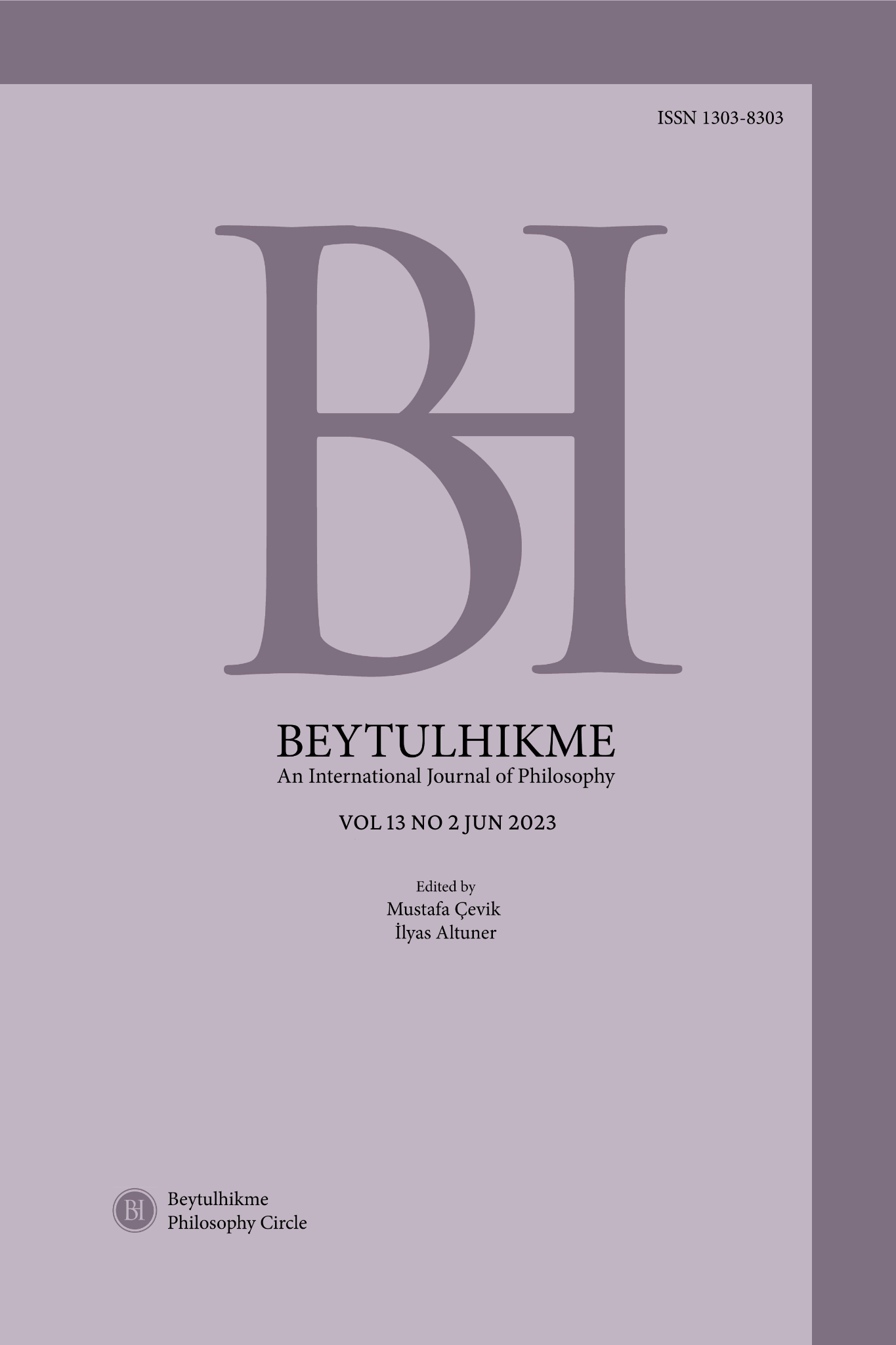Author :
Abstract
Philosophia, hayret ve merak duyguları üzerinden itici gücünü kazanan bir tür “pathos”u şart koşar. Ancak o, etkilenimin yanı sıra bu hâle eşlik eden etkin bir düşünme imkânıyla yani “logos”la tamamlanır. İç içe geçerek birbirini bütünleyen iki durum, “aporia” denilen problem bağlamında en belirgin görünümüne kavuşur. Felsefe tarihinde “aporia”, etkin bir biçimde Platon düşüncesinde kullanılır. Bilme faaliyeti içinde büyüyen bir kriz gibi duran “aporia”, diyaloglarda, genellikle bilmediğini bilmeme ve bilmediğini fark etmeye yönelme gibi iki tipik durumun ortaya çıkmasına vesile olur. Bununla birlikte “aporia”, diyaloglarda bambaşka bir anlamda daha tezahür eder. Bu ikinci ve ilkinin de zemini olan “aporia”, Sokrates’in “Bildiğim tek şey hiçbir şey bilmediğimdir” iddiasıyla temsil edilir. Çalışmamızda, Platon’un diyaloglarının paradigmatik unsurları üzerinden “aporia”nın ne tür bir “pathos-logos” rabıtası ekseninde işlendiğini çeşitli katmanları bakımından analiz ediyoruz. Amacımız, diğerlerine temel olan ve beşerî bilgeliğe götüren çıkmazın philosophianın sınırını nasıl çizdiğini göstermektir.
Keywords
Abstract
Philosophy stipulates a kind of “pathos” that gains impetus through feelings of wonder and amazement. However, it is completed with an active thinking possibility that accompanies this condition, namely “logos”, in addition to being affected. The two situations that complement each other by intertwining acquire their most obvious appearance in the context of the problem called “aporia”. In the history of philosophy, “aporia” is effectively used in Plato's thought. “Aporia”, which seems to be a growing crisis in the activity of knowing, conduces to the arise of two typical situations in dialogues, usually not knowing what one does not know and a tendency to realize that one does not know. However, “aporia” is appeared with a completely different meaning in dialogues. The “aporia”, which is the basis of this second and the first, is represented by Socrates’ claim “The only thing that I know is that I know nothing.” In our study, we analyse the paradigmatic elements of Plato's dialogues, in terms of various stages, on what kind of “pathos-logos” nexus the “aporia” is processed. Our aim is to show how the impasse which is the others fundamental and leads to human wisdom, draws the boundaries of philosophy.





